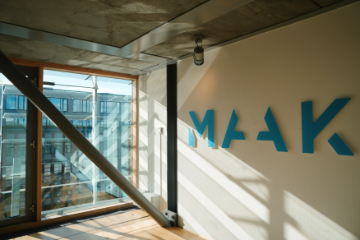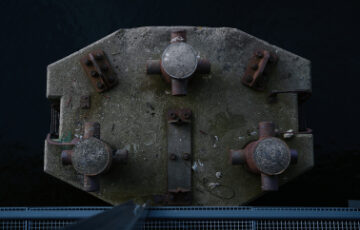
Corporate litigation in the Netherlands is a critical aspect of the legal landscape in the Netherlands, encompassing various legal proceedings under Dutch law related to business disputes and corporate matters in the Netherlands. At MAAK Advocaten, our corporate attorneys specialize in navigating the complexities of Dutch corporate law, offering expert guidance and representation to our clients. Our Dutch corporate attorney shall explain the most important aspects.
Key Takeaways
- Corporate litigation in the Netherlands involves disputes requiring sound understanding of Dutch corporate law (“Book 2 of the Dutch Civil Code” in particular), and Dutch Procedural law (“Wetboek van Burgerlijke Rechtsvordering“)
- The Enterprise Chamber in Amsterdam plays a significant role in corporate proceedings in the Netherlands, including shareholder buy-out procedures and corporate inquiry cases.
- Director’s liability under Dutch law can lead to personal liability under Dutch law for damages from wrongful acts, necessitating legal support for directors.
- Legal advice under Dutch law and consultancy services can offer strategic advice on corporate litigation issues, shareholder disputes, and corporate inquiry cases.
- Dutch civil code governs in Book 2 the shareholder buy-out procedures and ensures a balance between minority shareholder rights and corporate structure integrity.
Understanding Corporate Litigation under Dutch law
Corporate litigation in the Netherlands involves legal disputes arising within the realm of company law and procedural law. These disputes in the Netherlands can range from post-M&A disagreements to joint venture conflicts, Dutch shareholder disputes, and director’s liability under Dutch law. At its core, corporate litigation addresses all potential legal conflicts that may arise in the context of business operations. In the Netherlands, legal representation is a fundamental aspect of corporate litigation, with experienced lawyers guiding clients through the intricacies of the legal process. Arbitration is also common in corporate disputes, providing an alternative method for resolving conflicts outside of traditional court proceedings.
Navigating Commercial Disputes in the Netherlands
Commercial disputes are a prevalent issue in the business world, requiring swift and effective resolution. Our Dutch litigation attorneys at MAAK Advocaten specialize in handling a wide range of commercial litigation matters, ensuring that our clients receive comprehensive legal support tailored to their specific needs.
The Role of Dutch Procedural Law
Procedural law in the Netherlands plays a crucial role in corporate litigation, governing the legal procedures and protocols that must be followed during litigation proceedings. Understanding procedural law is essential for effectively navigating the complexities of corporate disputes and ensuring that our clients’ legal rights are protected.
Corporate Litigation under Dutch law
Often, corporate litigation under Dutch law encompasses a wide array of disputes, including directors’ liability issues, conflicts within groups, and disagreements over takeovers. In this legal environment, dealing with such disputes requires extensive knowledge of company law, and understanding the intricacies of director’s liability under Dutch law. At the heart of these disputes, you’ll often find issues related to director’s liability. Understanding the Dutch perspective on this matter is crucial. Under Dutch law, directors can be held liable for improper management, which can include situations where they’ve failed to fulfil their duties, acted negligently or acted in breach of the company’s articles of association.
Moreover, the Dutch legal environment is characterized by the central role of the Enterprise Chamber in Amsterdam, which exclusively deals with corporate proceedings. This includes procedures like corporate inquiry cases and shareholder buy-outs, governed by the Dutch Civil Code. Navigating such a complex legal landscape necessitates legal expertise in the Netherlands. Specialist lawyers, notaries, and consultants are vital to successfully manage corporate litigation. Their knowledge and experience in Dutch law provide the essential guidance and representation in these intricate legal situations.
The Dutch Legal Environment
Understanding the Dutch legal environment, which includes civil, administrative, and criminal courts, is key to successfully navigating corporate litigation in the Netherlands. This legal landscape is multifaceted, with each court playing a distinct role in corporate law enforcement. Commercial disputes, for instance, can be addressed either through civil courts or the Administrative Court for Trade and Industry.
Legal entities in the Netherlands also have the option to resolve disagreements through alternative methods such as arbitration and mediation, which are governed by legal regulations including the Arbitration Act. This act, last amended in 2015, is a testament to the Netherlands’ commitment to providing efficient and effective legal resolutions.
Moreover, corporate governance in the Netherlands is also shaped by the existence of the Netherlands Commercial Court, established in 2017. This specialized court has been instrumental in handling commercial disputes, thus ensuring a more streamlined legal process for corporations.
In essence, the Dutch legal environment is a complex and dynamic system that offers multiple avenues for dispute resolution. Its understanding is crucial for any entity engaged in corporate litigation in the Netherlands.
Key Aspects of the Dutch Civil Code (DCC)
When diving into the intricacies of the Dutch Civil Code (DCC), you’ll quickly discover its pivotal role in governing shareholder buy-out procedures, a significant aspect of Dutch corporate law. This civil code provides a firm legal foundation for resolving disputes, particularly those involving minority shareholders seeking buy-outs from majority stakeholders.
In the initial stages, district courts handle these buy-out cases. However, the role of the Enterprise Chamber becomes crucial when appeals arise. The Chamber, renowned for its expertise in corporate proceedings, appoints independent experts to determine the terms for shareholder buy-outs.
The civil code ensures fairness and transparency in these procedures; it protects the rights of minority shareholders while maintaining the integrity of the corporate structure. It’s a balancing act to ensure no shareholder is unduly disadvantaged, while the continuity of the company is preserved.
Understanding the Dutch civil code is key to navigating the complexities of shareholder buy-out procedures. It provides the framework within which corporate disputes are managed and resolved, reinforcing the efficiency and fairness of Dutch corporate law. So, as you delve further into this realm, you’ll appreciate the critical role this code plays in structuring corporate litigation in the Netherlands.
Role of Amsterdam’s Enterprise Chamber
Diving into the heart of corporate litigation in Amsterdam, you’ll find the Enterprise Chamber in Amsterdam playing a pivotal role, wielding exclusive jurisdiction over various corporate proceedings. As a division of the Amsterdam Court of Appeal, it’s a key player in resolving corporate disputes, particularly in high-stakes and complex cases.
A Dutch corporate lawyer, especially from a leading law firm like MAAK Advocaten, is often involved, providing expert guidance and representation in such intricate corporate legal matters. These matters might involve a variety of disputes between corporations, shareholders, and corporate bodies, where the expertise of the Enterprise Chamber comes into play.
Among the key proceedings that the Enterprise Chamber handles are shareholder buy-out procedures. Governed by the Dutch Civil Code, these procedures can be initiated and adjudicated by the Chamber. It’s their responsibility to ensure fair resolutions, determining buy-out terms that uphold the rights of all parties involved.
In essence, the Enterprise Chamber is more than just a legal entity. It’s a crucial component of the corporate litigation landscape in Amsterdam, ensuring that all legal proceedings are conducted in a fair, systematic, and precise manner.
Corporate disputes in the Netherlands
In the realm of corporate litigation in the Netherlands, you’ll find that the Enterprise Chamber plays a crucial role in corporate inquiry cases, holding exclusive jurisdiction over these complex investigations into alleged mismanagement or potential conflicts of interest within companies. This court’s intervention is often required to ensure the proper governance model is being followed, particularly in cases involving entities with limited liability.
The legal provisions that govern these inquiries permit shareholders or corporate bodies to initiate proceedings. This is a critical aspect of maintaining the balance of power and ensuring accountability within the varying legal forms of corporations in the Netherlands. The Enterprise Chamber’s role doesn’t end there. It also appoints independent experts to provide detailed assessments of the situation and offer recommendations.
These commercial or corporate inquiry cases aren’t just about identifying mismanagement or conflicts. They’re about ensuring that all parties involved, from directors to shareholders, fulfill their legal duties. The findings from these cases often inform the future actions of the Enterprise Chamber, shaping the landscape of corporate litigation in the country. So, in the Netherlands, corporate inquiry cases are an essential mechanism for maintaining corporate integrity.
Shareholder Buy-outs under Dutch law: A Closer Look
Navigating the complex realm of shareholder buy-outs under Dutch law, you’ll find that these are governed by the Dutch Civil Code, with both majority and minority shareholders entitled to initiate buy-out procedures. The legal requirements under Dutch law dictate that district courts handle the initial cases, while the Enterprise Chamber handles appeals.
Intricately linked to inquiry proceedings, shareholder buy-outs often arise as a result of these investigations by the Enterprise Chamber in Amsterdam. This specialist judicial body plays a central role in the resolution of shareholder disputes, including buy-outs. It’s this body’s responsibility to appoint independent experts to determine the terms of the buy-outs, ensuring fairness and precision in the process.
Understanding the dynamics of shareholder buy-outs is vital. They can drastically impact the balance of power within a firm, and therefore, the strategic direction it may take. As a majority or minority shareholder, being knowledgeable about your rights and the procedures involved is essential. MAAK lawyers, with their in-depth knowledge of the Dutch Civil Code, provide crucial guidance in these complex legal matters, offering expert representation to navigate the labyrinth of shareholder buy-outs under Dutch law.
Legal Entities and Business Structures in the Netherlands
When setting up a business in the Netherlands, you’ll encounter various legal entities such as private limited companies (BV), public limited companies (NV), partnerships (VOF), and branches of foreign companies, each offering unique advantages and considerations. BVs, the most common business structure, provide limited liability, flexible management, and simple incorporation procedures, making them ideal for small to medium-sized businesses. It’s important to note that BVs have their own legal personality, which can be advantageous for protecting personal assets.
NVs, on the other hand, are suited for larger companies with publicly traded shares, and must adhere to more stringent governance code requirements. VOFs offer a flexible business structure with shared management and profit distribution among partners. However, you should seek legal advice as partners have unlimited liability.
Lastly, branches of foreign companies operate in the Netherlands as extensions of their parent companies, subject to Dutch laws and regulations. Legal services are often required to navigate these complexities. Understanding these business structures and their legal implications is crucial for making informed decisions about your business setup in the Netherlands.
Corporate Governance: Dutch Perspective
Ever wondered how the Dutch handle corporate governance? It’s an intricate system rooted in the legal framework of the Dutch Civil Code. This code, coupled with the Dutch Corporate Governance Code, provides legal principles and best practices that listed companies must adhere to.
The legal practices in the Netherlands emphasize transparency and accountability. They’re designed to protect the rights of minority shareholders, ensuring fair treatment for all. This is part of the reason why the Enterprise Chamber in Amsterdam holds exclusive jurisdiction over corporate governance disputes.
Legal updates are regularly made to keep the system robust and relevant. These amendments reflect the dynamic nature of corporate governance, continually adjusting to the evolving business landscape. You, as a shareholder, have rights and obligations defined not only by law but also by your company’s statutes.
If you find yourself needing legal assistance, firms like MAAK Advocaten can guide you through the complexities of Dutch corporate governance. Their expertise in corporate litigation can provide essential support during legal challenges, making them a reliable choice in this sphere. So, in the Netherlands, corporate governance isn’t just about managing companies; it’s about ensuring fairness and accountability.
Corporate litigation in the Netherlands and Director’s Liability
Under Dutch law, as a director, you could be personally held liable as a director for damages resulting from wrongful acts or mismanagement, a principle governed by the Dutch Civil Code and reinforced by case law. This legal structure demands a high duty of care from you, along with loyalty and comprehensive disclosure.
- Legal expertise: A sound understanding of the Netherlands’ corporate laws is mandatory. You should be aware of your responsibilities and liabilities as a director.
- Legal support: You can protect yourself from potential liabilities by seeking support from legal professionals. They can guide you through complex legal landscapes, ensuring compliance with Dutch law.
- Legal structures: Understanding the structures in place, like the role of the Enterprise Chamber, is essential. This Amsterdam-based institution plays a critical role in cases involving director’s liability.
- Mismanagement: Avoiding mismanagement is pivotal. Any form of negligence or wrongful act can result in personal liability.
Legal Proceedings in the Netherlands
In navigating the multifaceted legal landscape of the Netherlands, you’ll encounter a variety of court systems, encompassing civil, administrative, and criminal courts, each equipped to handle distinct types of disputes. In particular, legal proceedings in civil courts often revolve around commercial disputes, which can also be adjudicated by the specialized Administrative Court for Trade and Industry.
The country’s legal structure also facilitates alternative methods of dispute resolution, such as arbitration. Governed by the Arbitration Act, last amended in 2015, arbitration proceedings offer a popular and effective means of settling commercial litigation without resorting to the more traditional court system.
Moreover, to manage complex commercial disputes more efficiently, the Netherlands established its own Commercial Court in 2017. This institution, working alongside the civil and administrative courts, further strengthens the country’s legal framework and demonstrates its commitment to providing comprehensive solutions for corporate litigation.
Legal Advice and Consultancy Services in the Netherlands
When you’re dealing with corporate litigation in the Netherlands, it’s crucial to have expert legal advice and consultancy services on your side, like offered by our Dutch law firm. Our Dutch corporate attorneys have a keen understanding of the intricate corporate law landscape and can provide you with the necessary support and guidance.
Frequently Asked Questions
What is the significance of procedural law in corporate litigation?
Procedural law governs the legal procedures and protocols that must be followed during litigation proceedings, ensuring fair and equitable outcomes for all parties involved.
How can arbitration be beneficial in resolving corporate disputes?
Arbitration provides an alternative method for resolving corporate disputes outside of traditional court proceedings, offering greater flexibility and confidentiality in the resolution process.
Why is expert legal advice essential in navigating corporate litigation?
Expert legal advice ensures that clients receive comprehensive guidance and representation throughout the litigation process, safeguarding their legal rights and interests.
Dutch corporate law firm
Specializing in corporate litigation, MAAK Advocaten, a distinguished Dutch corporate law firm, stands out for its extensive experience and successful track record in representing corporations, management, and shareholders in a variety of legal matters. They expertly navigate the Dutch legal system, applying complex legal concepts to help their clients execute sound legal transactions. They’re adept at using legal instruments to protect your interests, from corporate inquiry cases to shareholder buy-outs. Their proficiency in these legal concepts has led to numerous victories in the Enterprise Chamber, the exclusive jurisdiction for corporate proceedings in the Netherlands. MAAK Advocaten is not just a law firm; it’s a partner that ensures your corporate affairs are managed with precision and care. Here’s a look at their key services:
| Services | Description | Impact |
|---|---|---|
| Corporate Litigation in the Netherlands | Expert legal representation in corporate disputes governed by Dutch law | Reducing risk and uncertainty |
| Shareholder Buy-outs under Dutch law | Efficient execution of complex transactions | Protecting shareholder rights |
| Enterprise Chamber Proceedings (“Ondernemingskamer”) | Expert litigation representation in the Netherlands (Amsterdam) | Our office is located around the corner |







